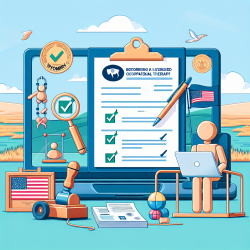Understanding Biosimilars: A Game Changer in Pharmaceutical Procurement
In the ever-evolving landscape of healthcare, ensuring access to affordable and effective medications is a priority. One promising avenue in this regard is the use of biosimilars, which are biologic products that are highly similar to already approved reference products. The potential of biosimilars to reduce costs and improve patient access is significant, but their uptake is influenced by various factors, including drug tendering processes.
The Role of Tendering in Drug Procurement
Tendering is a competitive bidding process used to procure medications at the lowest possible cost while ensuring quality and reliability. This process is crucial in controlling pharmaceutical expenditures, which are projected to reach $1.4 trillion globally by 2020. Tendering can lead to substantial cost savings, as evidenced by the 85% reduction in drug prices in the Netherlands following the introduction of preference policies.
However, tendering is not without its challenges. It can lead to reduced competition if not managed properly, potentially resulting in drug shortages. For instance, reliance on a single supplier can cause supply disruptions if the supplier defaults. Splitting contracts among multiple suppliers can mitigate these risks but may reduce the level of savings achieved through economies of scale.
Biosimilars: A Cost-Effective Alternative
Biosimilars offer a promising solution to the challenges of high drug costs and limited access to biologic therapies. These products are expected to generate significant savings, as seen with Zarzio®, a biosimilar filgrastim, which saved €85 million annually across 17 EU countries in 2011. The introduction of biosimilars can also stimulate competition and innovation in the pharmaceutical market.
The uptake of biosimilars varies globally, influenced by factors such as regulatory policies, market incentives, and stakeholder education. In Norway, for example, competitive tendering has led to substantial discounts on biosimilars, resulting in significant market penetration. Conversely, in countries like Austria, mandatory price reductions have discouraged biosimilar competition.
Implications for Practitioners
For healthcare practitioners, understanding the dynamics of biosimilars and tendering is crucial. By staying informed about these developments, practitioners can advocate for policies that maximize the benefits of biosimilars, ensuring cost-effective patient care without compromising on quality.
Practitioners are encouraged to engage in further research and dialogue with policymakers to support the adoption of biosimilars. By doing so, they can contribute to a healthcare system that balances cost containment with the availability of high-quality treatments.
To read the original research paper, please follow this link: Drug tendering: drug supply and shortage implications for the uptake of biosimilars.










